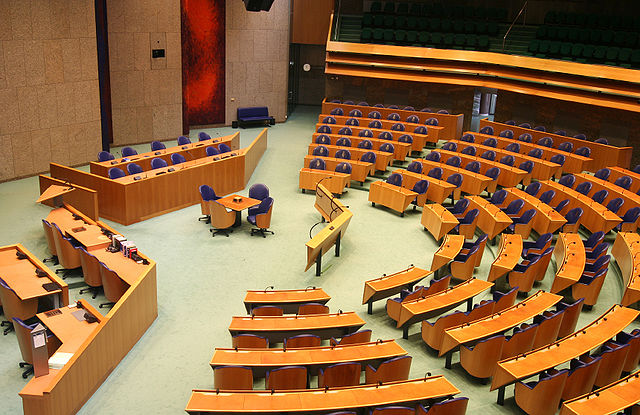Dutch prime minister faces stormy debate over dividend tax memos


Prime minister Mark Rutte and finance minister Eric Wiebes face a stormy debate in parliament on Wednesday afternoon following the publication of memos about the new government’s controversial decision to abolish dividend tax.
The memos make it clear that finance ministry officials felt abolishing the tax on foreign shareholders ‘did not play a major role’ in the Netherlands attractiveness as a place to do business, as argued strongly by the cabinet.
In addition, it would be be ‘bad for the Netherlands image’ because it increased the risk of companies moving money through the country as part of tax avoidance schemes, finance ministry officials state.
The scrapping of the tax on foreign shareholders, which will cost the Dutch treasury €1.4 billion a year from 2020, was one of the most controversial clauses in the coalition deal agreed last year, not least because none of the parties had campaigned on the issue during the general election.
Shell and Unilever
Opposition parties have claimed that the decision to abolish the tax was the outcome of a co-ordinated campaign by multinational firms such as Unilever and Shell and the employers’ organisation VNO-NCW.
The memos make it clear that Unilever, in particular, had been involved in high-level lobbying and that the potential of losing Unilever’s headquarters to London had played a major role in the decision to scrap the tax. In particular, Unilever chief executive had had talks with Wiebes himself, who was then the VVD’s finance spokesman.
Rutte described Unilever’s decision last month to locate its headquarters in Rotterdam as ‘very good news’ but denied that it was the sole reason for scrapping the tax.
Unilever, too, said this was not the reason for the decision.
Debate
The publication of the memos has provided the opposition with a great deal of ammunition, RTL Nieuws commentator Frits Wester said.
‘Mark Rutte has a very tough and difficult debate ahead of him,’ Wester said. ‘The opposition parties have been proved right… Rutte said that scrapping the tax would be good for the Dutch economy but I can find nothing to support this positive story in the memos.’
Labour leader Lodewijk Asscher said the memos showed Rutte had gone ‘for multinationals, not people’, while Socialist leader Lilian Marijnissen said Rutte had ‘once again been unmasked as the lapdog of big business.’
Nevertheless, the revelations are unlikely to prompt a u-turn on the policy, unless either D66 or ChristenUnie, both partners in the current coalition, change their minds.
Thank you for donating to DutchNews.nl.
We could not provide the Dutch News service, and keep it free of charge, without the generous support of our readers. Your donations allow us to report on issues you tell us matter, and provide you with a summary of the most important Dutch news each day.
Make a donation